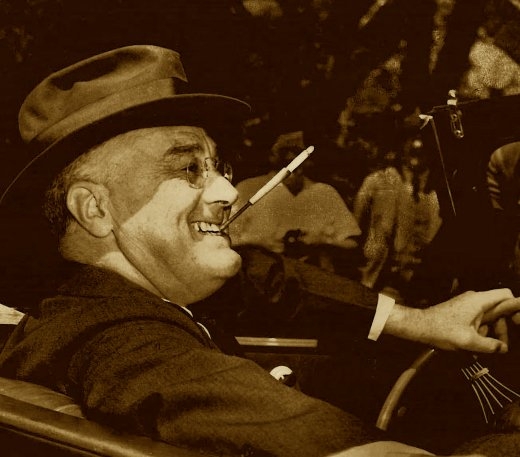
THE REFORMER: Seventy-five years ago, our nation was in the midst of one of the most dangerous and troubled periods in its history. In March 1933, about 15 million Americans — 1 in 4 workers — were unemployed. Five million American families — 1 in 7 — were barely surviving on an inadequate patchwork of private charity and public relief. In the little more than three years since the stock market crash of October 1929, more than 4,600 banks had failed. On March 3, 1933, a “bank holiday” was declared across the country and every remaining bank was either closed or about to be. The American
economy was at a complete standstill.
When Franklin D. Roosevelt stood on the steps of the Capitol at noon, 75 years ago today, to take the oath of office as the 33rd President of the United States, a nation — and the world — was hanging on his every word. Never before or since had so much been riding on an inaugural address. “This great nation will endure as it has endured, will revive and will prosper,” Roosevelt began. “So first of all, let me assert my firm belief that the only thing we have to fear is fear itself — nameless, unreasoning, unjustified terror which paralyzes needed efforts to convert retreat into advance.”
With those words, Roosevelt calmly outlined the depths of the crisis facing America and appealed to Americans not to lose faith in themselves or their nation. “Happiness lies not in the mere possession of money,” he said. “It lies in the joy of achievement, in the thrill of creative effort. The joy and moral stimulation of work no longer must be forgotten in the mad chase of evanescent profits. These dark days
will be worth all they cost us if they teach us that our true destiny is not to be ministered unto but to minister to ourselves and to our fellow men.”
Roosevelt called for a greater role for government than had ever been seen before, and for more collective effort than had ever been seen before in peacetime in America. At a time when some openly speculated whether our nation would be better off under communism or fascism, Roosevelt never lost his faith in democracy. “Millions of his countrymen were anxious, and hungry, and afraid,” wrote Harry Hopkins, one of Roosevelt’s key advisors, in 1946. “With that one speech, and in those few minutes, the appalling anxiety and fears were lifted, and the people of the United States knew that they were going into a safe harbor under the leadership of a man who never knew the meaning of fear.” MORE
THE PLOT TO OVERTHROW FDR
A documentary on the business plot of 1932, in which a group of private financiers sought to depose FDR and impose a fascist government in the United States.
